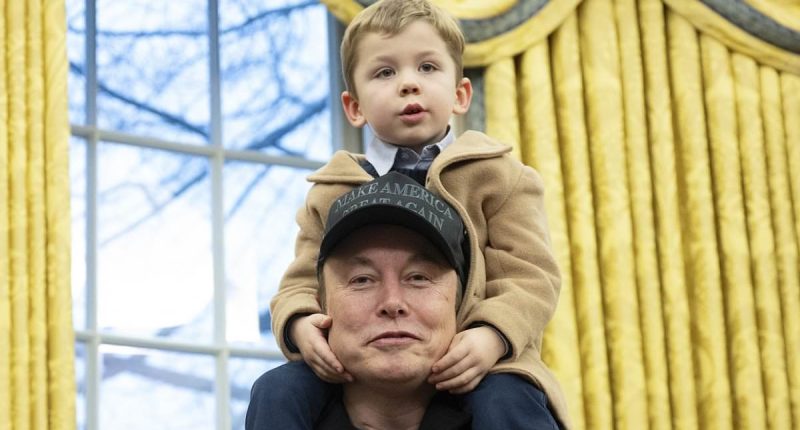Share this @internewscast.com
Elon Musk has warned for years that ‘population collapse’ is a bigger threat to civilization than climate change.
Now, new research has suggested that American women may be quietly proving him right.
The study looked at the fertility intentions of over 41,000 women aged 15 to 44, finding that 50 percent of them were uncertain if they would have children in the future, even though they desired to be a mother.
Researchers found that economic pressures, social shifts, and emotional uncertainty are driving a growing disconnect.
The data also showed that uncertainty about having children isn’t the same for all, and younger women are experiencing the biggest changes.
Women aged 15 to 29 became increasingly unsure not only about whether they would have children, but also how strongly they felt about wanting them.
In contrast, women aged 30 to 44 showed relatively stable levels of certainty over time.
The data was collected from 2002 through 2019, which the team speculated revealed why US birth rates have been on a steady decline since the 2007 Great Recession.
The fertility rate has decreased by 21 percent between 2007 and 2024.

Elon Musk has warned for years that ‘population collapse’ is a bigger threat to civilization than climate change, and now new research suggests American women may be quietly proving him right. Pictured is Musk with his son X
Musk, the billionaire father of 14 children, has often pointed to declining fertility as a sign that modern societies are forgetting how to survive.
He previously said that low birth rates mean few workers, increased debt, strained healthcare and pension systems, and total social unrest.
The US fertility rate was stable at about 2.0 children per woman in the 1990s and early 2000s, reaching a peak of 2.12 in 2007, statistics show. But the fertility rate steadily declined in the aftermath of the Great Recession, falling to 1.62 in 2023.
Sarah Hayford, co-author of the study and professor of sociology at The Ohio State University, told Ohio State News: ‘People’s feelings about having children are complicated, and we found there are a lot of nuances.
‘It suggests that there is no simple answer to the declining birth rate in the US.’
The study used data from the National Survey of Family Growth, a federally funded survey conducted by the National Center for Health Statistics.
Over the years studied, the team found that 62 percent of women said they intended to have a child and 35 percent did not intend to, with only a small percentage saying they didn’t know.
But up to half of the participants who intended to have children said they were only ‘somewhat sure’ or ‘not sure at all’ that they would realize their intention to have a child.
The team found that women with higher incomes and education levels were more inclined to report ‘very sure’ that they would have children than those on the opposite side of the spectrum.

Overall results trends in uncertainty among women intending (more) children, showing proportions who are not at all sure, somewhat sure, or very sure, with confidence intervals.

Levels of certainty among women considering having children, showing the percentage who said they were not at all sure, somewhat sure, or very sure. Data includes confidence intervals and is grouped by parental status (b) and age (c).
However, women with a bachelor’s degree who gave that answer declined from 65 percent in 2014 to 54 percent in 2018.
The data revealed another pattern holding women back from having children -the actual desire to be a mother.
Up to 25 percent of childless women wouldn’t be bothered if they never had kids.
‘This not being bothered was especially high among younger women, and it increased over time among those who were younger,’ Hayford said.
‘They are open to different pathways and different kinds of lives. If they don’t become parents for whatever reason, it doesn’t seem that upsetting to many of them.’
One commonly suggested reason for the declining birth rate is that young people today feel uncertain about the future, both of the country and the world, which may be causing them to delay or avoid having children.
The team conducted a second study, surveying 3,696 people, which found that the more disassified they were with their own lives, the less likely they were to want a child.
‘It was a bit of a surprise to us, but it was only their personal situation that mattered in whether they expected to have children,’ Hayford said.
‘It wasn’t so much what was going on in society that predicted their fertility goals.’




